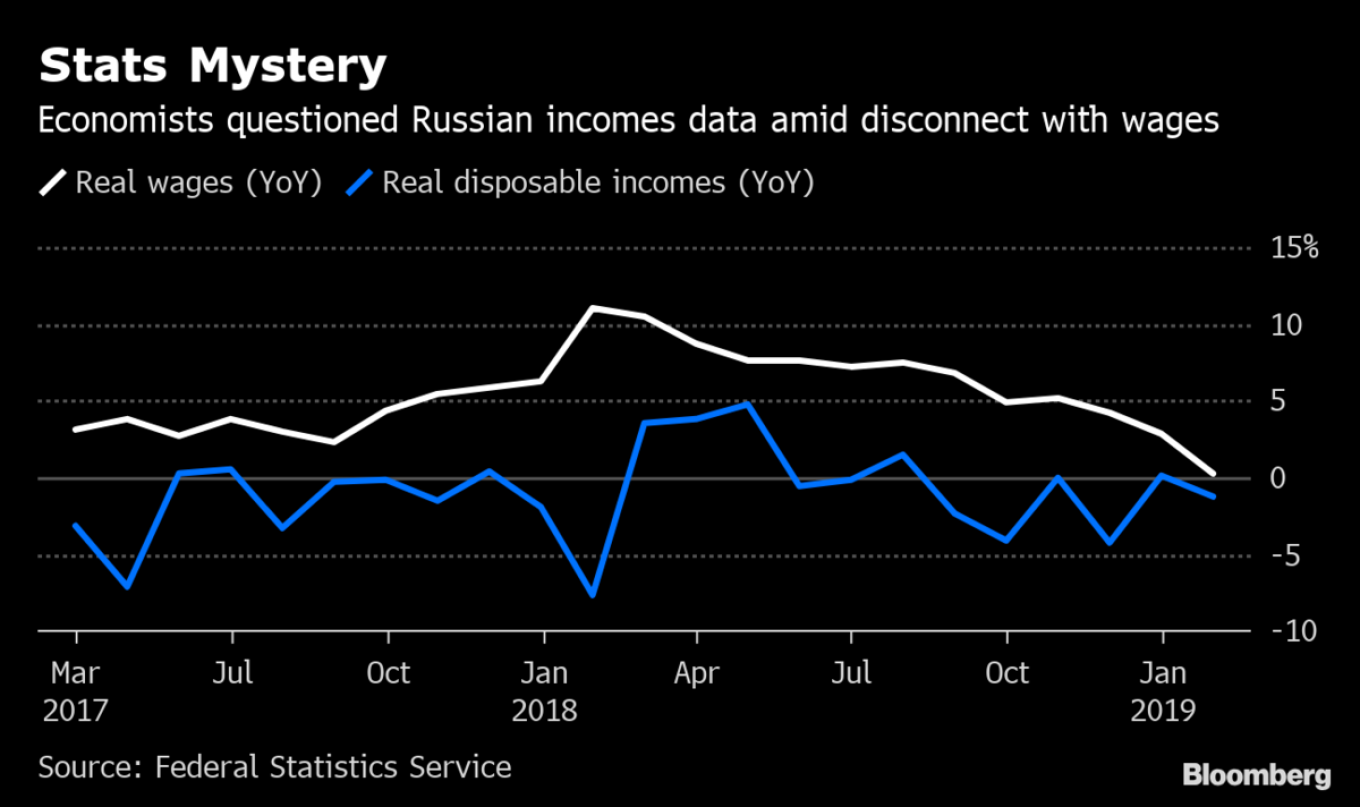Russia will stop publishing monthly data that’s shown a slump in disposable incomes for five straight years after the indicator was criticized for using methodology that’s decades out of date.
The Federal Statistics Service will start releasing quarterly income data starting next month and historical numbers will be recalculated going back to 2013, head Pavel Malkov said at a briefing with journalists in Moscow. The new methodology will include data on online sales and sales from smaller retailers among other things, he added.
“We must admit that when we calculate monthly data, a significant part of the information is missing, so it’s modeling,” Malkov said. “Sometimes the data raises serious questions.”
Incomes have declined since 2014 amid a rise in retail sales, prompting many analysts to question the reliability of the underlying data. Moscow-based VTB Capital published a three-page research note earlier this month criticizing the outdated methodology and recommending that economists disregard the income data entirely.
The statistics service comes under regular fire for the quality of its data, especially after growth numbers for 2018 released last month massively outstripped economist estimates. The Economy Ministry took control nearly two years ago and Malkov, a former economy ministry official, was appointed head late last year to address issues including the collection of primary data.

“Dismal real income data have painted a picture of lingering economic pain for consumers. There’s still some truth to that, but the revamped numbers should show households fared better as Russia’s economy recovered. That’s been the message in the wage and spending figures.” Scott Johnson, a Russia economist, told Bloomberg.
Economy Minister Maxim Oreshkin told the Vedomosti newspaper last week that the statistics service should consider changing its methodology for incomes data.
Rosstat developed its methodology for calculating disposable incomes in 1996 and since then it has only undergone one cosmetic update more than a decade ago, according to VTB Capital’s note.
A Message from The Moscow Times:
Dear readers,
We are facing unprecedented challenges. Russia's Prosecutor General's Office has designated The Moscow Times as an "undesirable" organization, criminalizing our work and putting our staff at risk of prosecution. This follows our earlier unjust labeling as a "foreign agent."
These actions are direct attempts to silence independent journalism in Russia. The authorities claim our work "discredits the decisions of the Russian leadership." We see things differently: we strive to provide accurate, unbiased reporting on Russia.
We, the journalists of The Moscow Times, refuse to be silenced. But to continue our work, we need your help.
Your support, no matter how small, makes a world of difference. If you can, please support us monthly starting from just $2. It's quick to set up, and every contribution makes a significant impact.
By supporting The Moscow Times, you're defending open, independent journalism in the face of repression. Thank you for standing with us.
Remind me later.






